I've long suspected that my controllers may not be accurate. Professional calibration is inconvenient and expensive, while the salt method is not reliable enough to instill confidence. I've generally been happy with my salumi, but am I getting the best results I can? However, I check my meats periodically and adjust humidity up or down depending on how the skin feels. It's never been a 'set it and forget it' process.
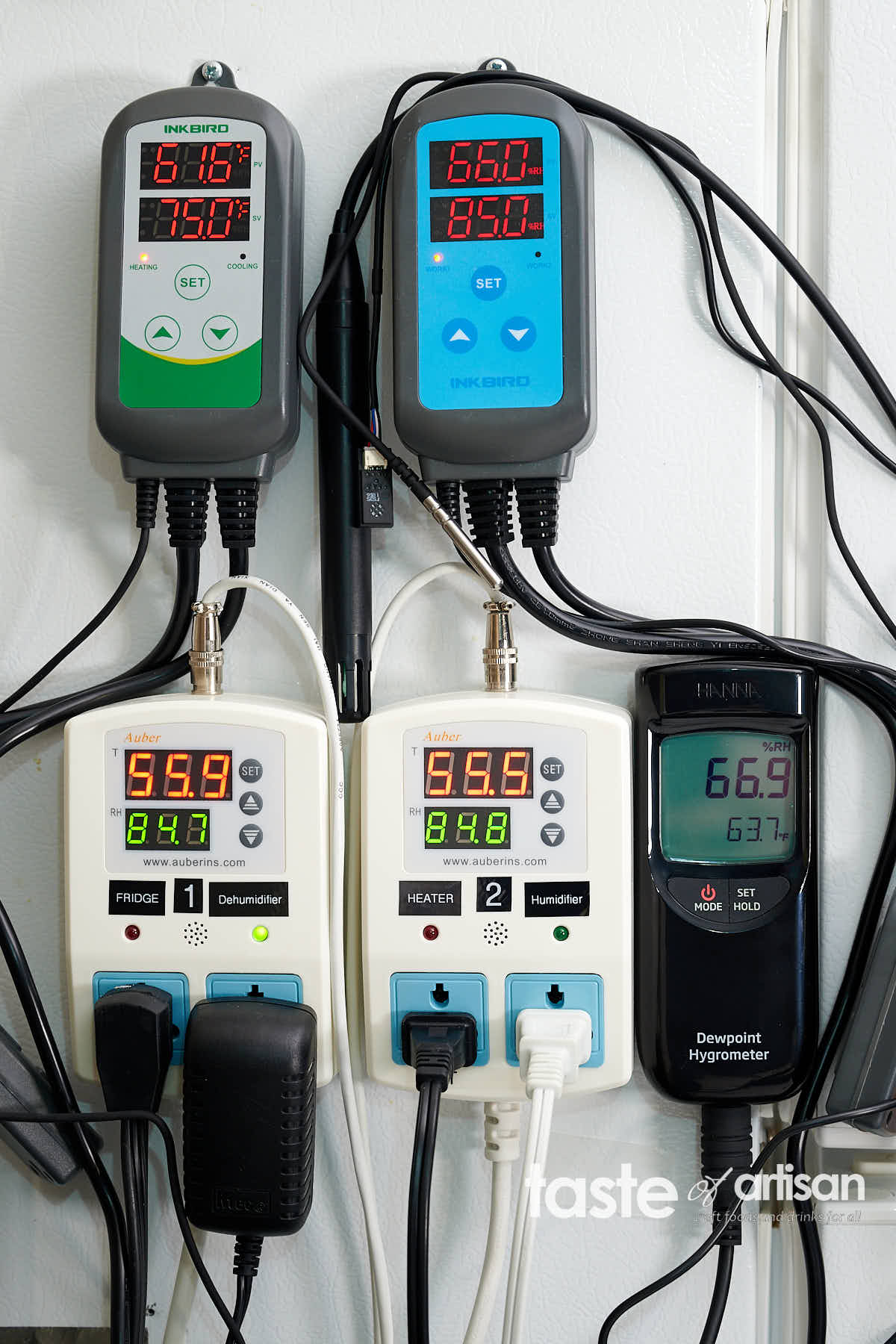
I've also experienced a few puzzling situations where I had no idea how they could possibly happen. So, I decided to invest in a professionally calibrated reference hygrometer. My choice landed on Hanna Thermohygrometer HI9565, which I purchased from their website. I've had a couple of Hanna PH meters for many years, and they've been exceptionally accurate and reliable. I hope the hygrometer shows the same level of accuracy and longevity. So far, I've been delighted with it. It has a 0 -100% range (very few of them do), high accuracy (±2.5 %), and is quite responsive. Was it worth it? Absolutely! Here is why:
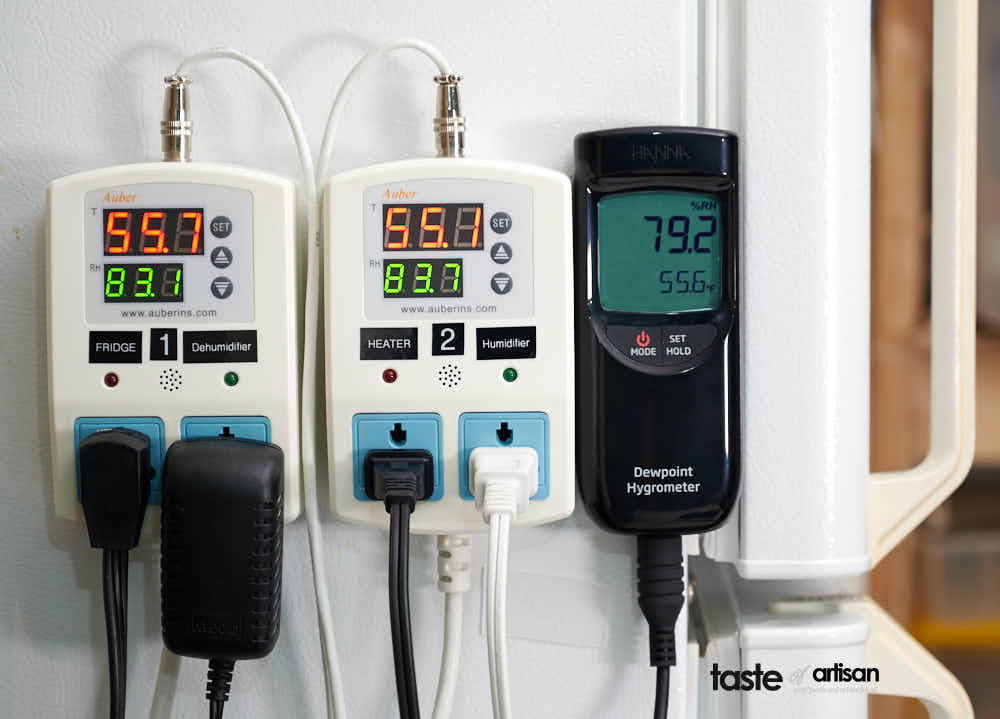
I've been asked dozens of times about Inkbird vs Auber controllers. Are Auber controllers better? A while ago, I bought Inkbird ITC-308 and Inkbird IHC-200 temperature and humidity controllers with the intention to play with them and do a detailed review, but life had other plans for me. At some point, I used them with one small batch and they did the job. Then, while I was testing my Auber controllers against the Hanna HI9565, I decided to throw the Inkbirds into the mix. How did they do?
Out of the box, both Auber and Inkbird RH deviated from the reference Hanna hygrometer by 9.5 percentage points (Inkbird) and 3.7-4.3 (Auber). This was when measuring RH in the fridge at 56F, after a 30-minute stabilization period.
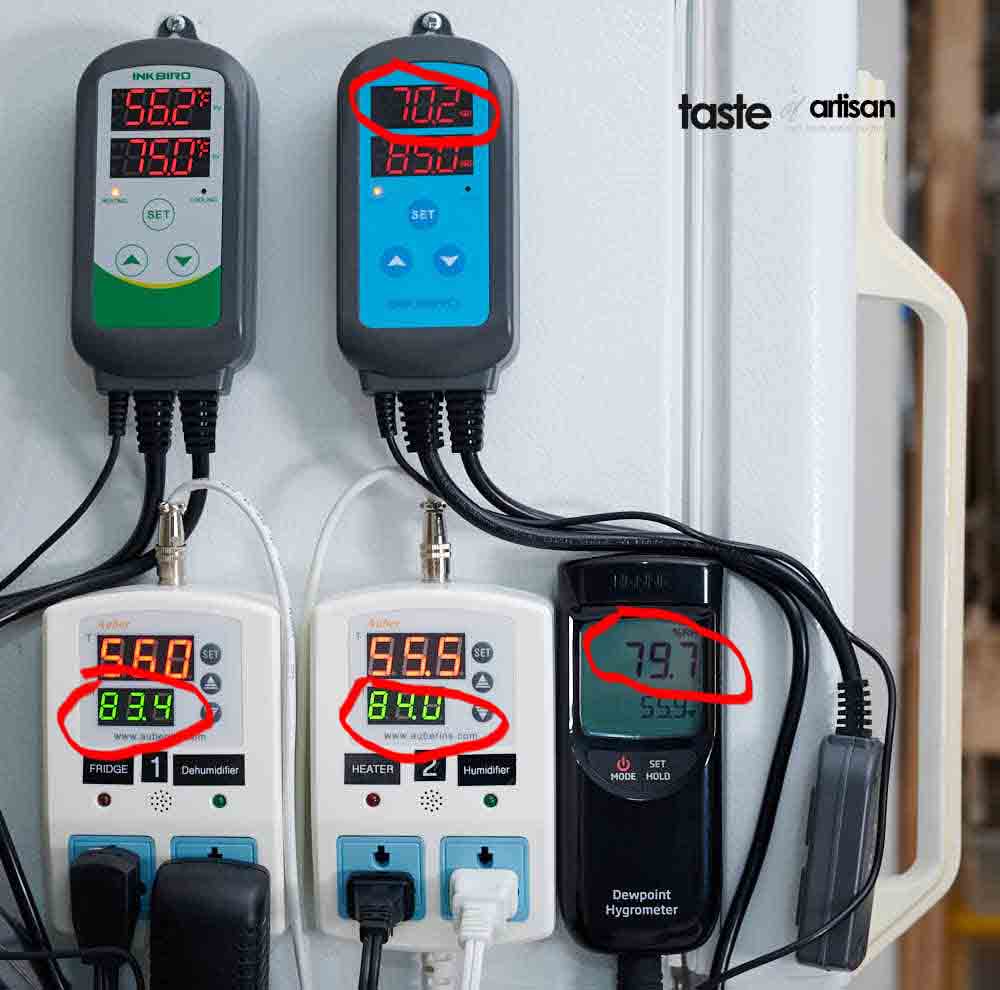
When testing outside of the fridge at room (basement) temperature of 68F, again after a 30-minute stabilization period, Inkbird was off by only 3.2 percentage points, while Auber was off by 6.7.
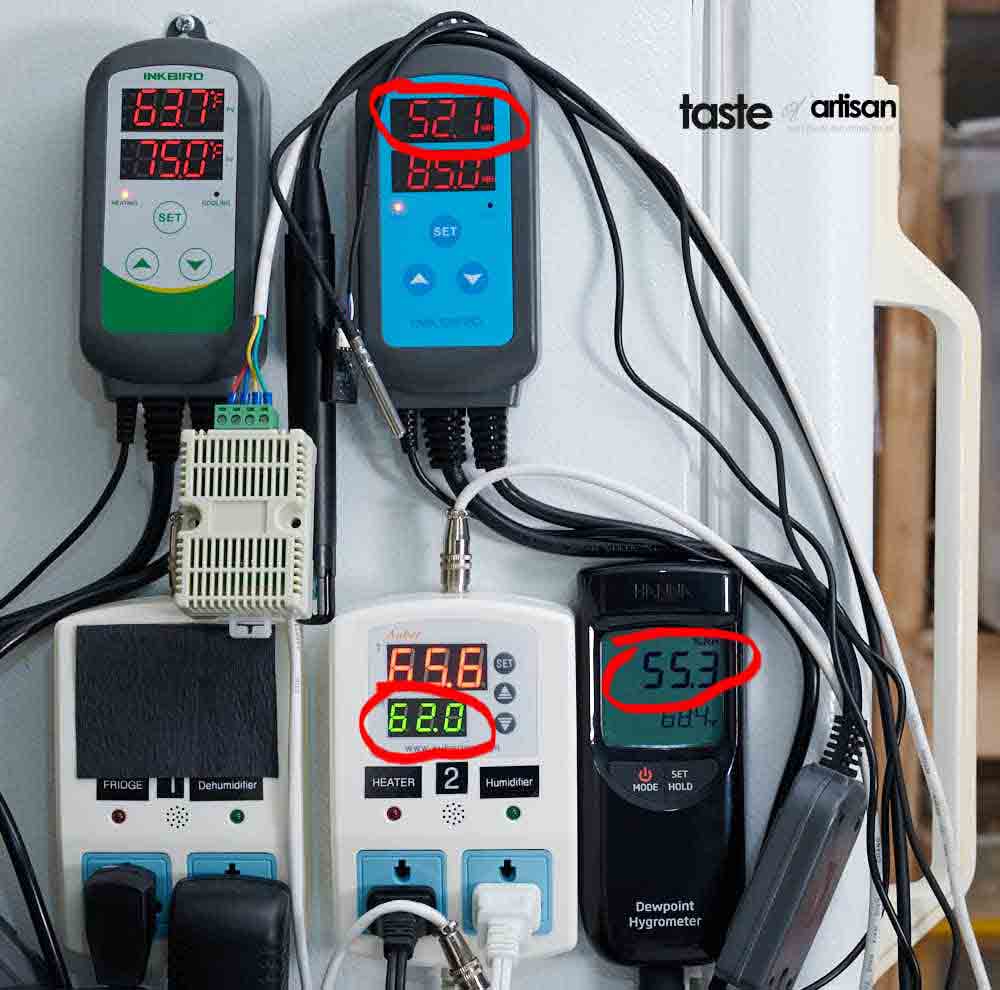
Here is another test under the same conditions as before, but Auber had a brand new sensor. Again, the Inkbird was the closest, off by only 3.4 units, while Auber was off by 7.2. Note how the temperature reported by Inkbird is spot on, while Auber is off by almost 2 degrees.
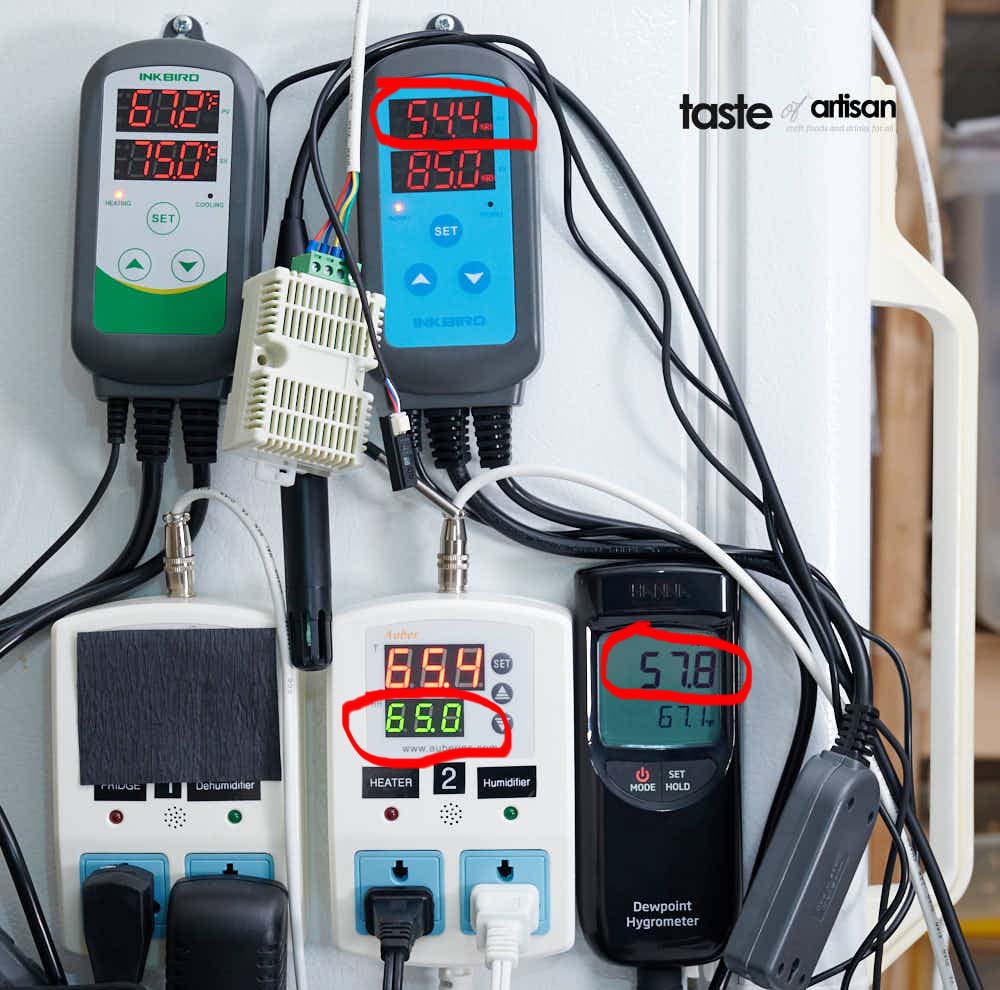
Conclusions:
Auber controllers seem to be optimized for the curing temperatures of around 55F, while Inkbird seems to be more accurate at higher temps and vice versa. Both Auber and Inkbird humidity controllers are not perfect and need to be calibrated. The deviations that they show are significant enough to cause major impact on curing results.
If you calibrated them at 55F, will they still be accurate at 70F-80F during fermentation? This is where a reference hygrometer like Hanna becomes invaluable.


NickR says
Would you be comfortable with using ink bird temp/humidity controllers or is the money better spent on two "better" Auber controllers?
Victor @ Taste of Artisan says
I would. Both controllers have their quirks. I am currently maturing a large batch of salami and whole muscles and I am finding some significant humidity differences between my reference hygrometer, my Auber controller and a new wireless hygrometer I am testing out. I decided not to bother calibrating them as what's important is how the surface of the meat feels. It should feel hydrated, not wet or dry. I check every day and if I find the surface a little dry, I bump up the humidity by 2%, if a little wet, I do the opposite. You can also use other indicators like meat hardening near the surface, while the center remaining soft, or the surface becoming moldy (bad molds), slimy, smelly, etc. That's the best way to do it, I find. So, you only need to know the relative humidity for refence, then adjust up or down from there. Hope this helps.
simon wraight says
Hi, I've been curing for almost a year, after being inspired by you 🙂 but probably I only cure something every 2 months on average. I am looking for a cost effective way to measure ph. I had a hanna meat tester and despite caring for it well, the electrode has given up after barely 1 year.
I can get a cheaper monitor from amazon but lose confidence over reliability.
I am growing in confidence of my process and wonder if I can do without a monitor. What are your thoughts on this?
Victor @ Taste of Artisan says
Hi Simon, it's a very good question. Like you, at some point I got confident and stopped following the proper process. I can't recommend this for obvious reasons, but I must confess, I hadn't used my pH meter for quite some time until about 2 weeks ago. And the reason I used it recently was because my T-SPX culture was about 2 years past the expiration date. I am very careful with my cultures, I do my best to not contaminate them and always keep them vacuum sealed in a chest freezer at -4F (-20C). My experience is that they stay viable well past the stated expiration date, but once they get older, I want to make sure they are still viable and I do spot pH checks. This last batch, the pH dropped to 5.1 when I checked it. No issues. I'll do another spot check next winter.
P.S. I have three Hanna pH meters. One is about 10-11 years old and still going strong. The other two are about 5-7 years old, one is giving strange readings and refuses to calibrate, the other one is fine. Sorry to hear about yours.